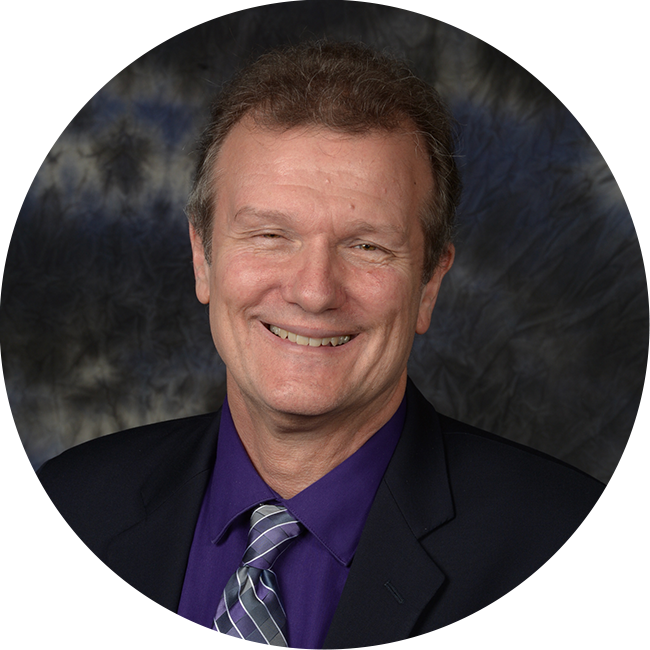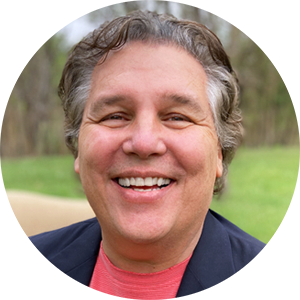
20 Questions to Help You & Your Clients Find Your Purpose & Calling
by The ICCI Team on August 16th, 2024
As Christian Life Coaches, guiding clients to discover their purpose and calling is one of the most profound and fulfilling aspects of our work. The journey of finding one’s purpose is deeply personal, as it aligns with God’s unique design and plan for each individual.
Scripture reminds us that God creates each of us uniquely (Psalm 139:14), He has a plan for us (Jeremiah 29:11), and He has given each of us gifts to fulfill His calling on our lives (Romans 12:6–8). Helping your clients uncover their God-given purpose can lead to a life of fulfillment, joy, and impactful service.
To aid you in this vital task, we’ve compiled a list of 20 practical questions that are valuable in helping clients explore and discern their purpose and calling. These questions are designed to spark introspection, encourage honest reflection, and ultimately guide individuals toward a clearer understanding of the path God has set before them.
20 Questions on Finding Your Purpose & Calling
1. What activities have been the most fulfilling to you – ones that brought you great joy and satisfaction?
2. When do you feel like you’re “in the zone” or “at your best”?
3. What has God clearly revealed to you in His Word about His purpose for you?
4. What would you like to spend more time doing?
5. What do you know should be a priority for you?
6. What is your greatest passion? (i.e. What do you love doing the most?)
7. What activities come naturally to you?
8. What activities/work have you been successful at accomplishing?
9. What have others noticed you’re good at doing?
10. What dreams, desires, or goals do you often think about?
11. What are your most important roles and responsibilities?
12. What are your God-given gifts and talents?
13. What current opportunities do you have?
14. What resources do you have at your disposal?
15. What do you really want out of life?
16. What problem in the world do you think needs to be solved?
17. What people do you have a heart for helping/praying for? (i.e. Who needs help?)
18. When have you felt like you’ve made a difference?
19. What would you like to be remembered for?
20. What do you want to accomplish before you die?
Helping Clients Find Their Purpose
Discovering one’s purpose and calling is a journey that requires patience, prayer, and purposeful reflection. By utilizing these 20 questions, you can help your clients delve deeper into their unique gifts, passions, and God-given talents. As Proverbs 19:21 reminds us, “Many are the plans in a person’s heart, but it is the LORD’s purpose that prevails.”
Encourage your clients to seek God’s guidance through prayer and Scripture as they navigate these questions. As they gain clarity and direction, they’ll be empowered to live out their calling with confidence and joy, thereby making a meaningful impact in their sphere of influence. Remind them regularly that God has a unique plan for them, and that He will help them fulfill their purpose.
“The LORD will fulfill his purpose for me;
your steadfast love, O LORD, endures forever.”
(Psalm 138:8 ESV)

Finding Your True Identity in Christ
by June Hunt on January 9th, 2024
Note: Excerpts from Identity & Self-Image by June Hunt in the Keys for Living library
The topic of identity reminds me of a tale about an eagle . . .
A little eaglet falls to the ground from its nest and is found by a family of turkeys. They take the helpless bird under their wings and teach him everything he needs to know to survive. But the more he grows, the less he looks like them.
He tries hard to be a good turkey, but he’s unhappy. On several occasions, he sees mature eagles soaring high in the sky. Crushed and defeated, the eaglet grows up without ever leaving the ground.
One day, a wise owl says to him, “Who are you? What are you doing?” The eagle replies, “I am a bad turkey. I try so hard, but I just can’t do anything right.” The owl says, “Your problem is that you don’t know who you are. You’re an eagle, and eagles are meant for the sky.”
The eagle’s eyes are opened. He sees who he really is . . . who he is meant to be. The eagle finds the courage to try something he’s never done before. He stretches out his wings and flaps to the top of a tree to see his way to the sky. Lifting his wings, he rises with the currents of the wind—and he never looks back. The eagle can now do what he is meant to do . . . because he knows who he really is.
This little tale reminds me that confusion about your identity can impact your destiny. The whole trajectory of your life can be affected when you don’t understand who God created you to be.
Defining Identity
If someone were to ask: “Who are you?” . . . What would you say? Most of us would state our name and then describe ourselves by what we do, by our profession: “I’m a teacher.” “I’m an accountant.” “I’m in sales.” But what happens if you can no longer teach or no longer work as an accountant or a salesperson? Is that really who you are?
Thankfully, name tags, professions, and pedigrees are never necessary with God. He has no need to ask who you are because He knows you even better than you know yourself. He formed your heart and fashioned you Himself.
Do you know the first thing God says about humanity—about you? It’s perhaps the most important truth to know about your identity and your worth: “God said, ‘Let us make mankind in our image, in our likeness . . .’ So God created mankind in his own image, in the image of God he created them; male and female he created them” (Genesis 1:26–27).
You are made in God’s image—it’s the first thing God tells you . . . about you. This truth is foundational to your identity, self-image, and worth. The Bible describes God as infinitely beautiful, glorious, and majestic. There is nothing greater than God. And you are made in His image! You therefore have inherent, unchanging, and immeasurable worth.
When you are “found in him,” everything changes. The identity you receive in Christ far outweighs any other identity you may have. Your gender, your family, your age, race, culture, school, job, accomplishments, status, and hobbies may all reveal important aspects about you—but they are not where your ultimate identity is found. Your identity is to be rooted in Christ.
Your Identity in Christ
You are loved.
“God loves you and has chosen you to be his own people” (1 Thessalonians 1:4 NLT).
You are chosen.
“Even before he made the world, God loved us and chose us in Christ to be holy and without fault in his eyes” (Ephesians 1:4 NLT).
You are accepted.
“Christ has accepted you so that God will be given glory” (Romans 15:7 NLT).
You are redeemed.
“But now, this is what the Lord says—he who created you . . . he who formed you . . . ‘Do not fear, for I have redeemed you; I have summoned you by name; you are mine’” (Isaiah 43:1).
You are precious.
“You are precious to me. You are honored, and I love you” (Isaiah 43:4 NLT).
You are forgiven.
“You were dead because of your sins and because your sinful nature was not yet cut away. Then God made you alive with Christ, for he forgave all our sins” (Colossians 2:13 NLT).
You are cleansed.
“But you were cleansed; you were made holy; you were made right with God by calling on the name of the Lord Jesus Christ and by the Spirit of our God” (1 Corinthians 6:11 NLT).
You are renewed.
“Anyone who belongs to Christ has become a new person. The old life is gone; a new life has begun!” (2 Corinthians 5:17 NLT).
You are empowered.
“His divine power has given us everything we need for a godly life through our knowledge of him who called us by his own glory and goodness” (2 Peter 1:3).
You are gifted.
“In his grace, God has given us different gifts for doing certain things well” (Romans 12:6 NLT).
You are useful.
“We are God’s handiwork created in Christ Jesus to do good works, which God prepared in advance for us to do” (Ephesians 2:10).
You are blessed.
“All praise to God, the Father of our Lord Jesus Christ, who has blessed us with every spiritual blessing in the heavenly realms because we are united with Christ” (Ephesians 1:3 NLT).
_____________________________________________
ENCOURAGEMENT FOR COACHES
Consider how these biblical truths about our identity in Christ can be transformative for you and those you coach, mentor, disciple, and help. Remember, you can only give what you have received, so embrace these truths in your own life. Accept God’s grace, forgiveness, and love for you, and pray that He would give you His strength, wisdom, and kindness to share with others.

June Hunt, MA, is the Founder and Chief Servant Officer of Hope for the Heart, a worldwide counseling and caregiving ministry that offers Biblical hope and practical help in more than 60 countries and 36 languages. The Keys for Living Library provides the foundation for the ministry’s award-winning radio program, Hope in the Night, a live, one-hour, call-in counseling program. Her passion to help others through Biblical counsel is fueled by her joy in seeing a life changed through Christ. As an accomplished author, speaker, and musician, June has been a guest on various national television and radio programs, including the NBC Today show. She has toured overseas with the USO and has been a guest soloist with the Billy Graham Crusades. See more at: www.junehunt.org

Truth Out of Context: One Commonly Misapplied Bible Verse
by Emily Fraige, MA on December 12th, 2022
Introduction
A verse can be plucked from the Bible out of context and applied to almost any situation, sometimes accurately and sometimes inaccurately. Even when trying to help, well-intentioned people can risk causing harm to someone by misconstruing the meaning of a verse. As believers, and especially as people-helpers, we should strive to show how God’s Word is relevant to a person’s life, capable of bringing hope and healing, while not misrepresenting the truth in the process.
At ICCI, we look to the Bible as our foundation for truth. We encourage and train you—whether a life coach, counselor, pastor, or lay leader—to integrate Biblical principles into your work and ministry. When you are using Scripture to help someone, you want to know you are interpreting it and applying it correctly. Some verses, however, tend to be misinterpreted or misapplied. In this blog, we will take a closer look at one such passage by expressing the common misconceptions surrounding the verse, examining the context and original meaning, and exploring the proper application. The goal and the hope is to dig deeper into God’s Word to understand it more fully and to discover the situations where it applies most accurately.
Contentment in Every Situation
Consider the following verse: “I can do all things through him who strengthens me” (Philippians 4:13 ESV). Here is another vantage point from the Amplified Version: “I can do all things [which He has called me to do] through Him who strengthens and empowers me [to fulfill His purpose—I am self-sufficient in Christ’s sufficiency; I am ready for anything and equal to anything through Him who infuses me with inner strength and confident peace].” Let’s investigate this scripture further.
- Common Misconceptions
On its own, this verse sounds like it could be a mantra or a slogan, but if we declare these words as some type of self-reliant affirmation, we divorce them from their context and intended meaning. The words chosen in most English translations may contribute partly to people’s misunderstanding of this scripture. The phrase “all things” is translated from the Greek word pas, meaning “all.” The translation is correct, yet the concept of “all” can either include everything in the world or it can be limited based on the surrounding discussion. When people hear, “I can do all things,” and there is no context to restrict the meaning, some may think it is saying they can succeed at anything—regardless of the task, decision, or obstacle before them—because they have God on their side. The phrase “I can do” may also suggest an idea of self-sufficiency, but that could not be further from the truth. The verb “do” is not actually present in the original Greek; it is implied. The verb ischyō means “I am strong, powerful, able; I can.” As the end of the verse explains, the only reason Paul can be strong, powerful, and able to do anything is through the strength Christ provides.
- Context and Meaning
Paul is writing this letter to the church at Philippi while he is imprisoned. Despite this difficult situation, the letter has an overall theme of rejoicing in the Lord. In Philippians 4:10–20, Paul thanks the church for the financial gifts of support they sent him. Nevertheless, Paul wants to make clear with a “disclaimer” in verse 11 that he is not dependent on their gifts because he has learned a great secret—how to be content no matter his circumstances. In verse 12, Paul describes the ups and downs of life he has endured, from being brought low to having an abundance, from having enough food to going hungry, from living in plenty to living in want. He has learned how to be content in all these situations, using the Greek word pas twice there to emphasize any and every kind of situation. He follows this description with the statement: “I can do all things through him who strengthens me.” The NIV translation helps with clarity by restricting the meaning of all: “I can do all this through him who gives me strength,” adding the word “this” to show how Paul is referring to the highs and lows of the previous verse—any and every situation—when he says he can do “all things.” Paul is not negatively affected by prosperity or by poverty because he recognizes God as his source of strength and the One who meets his needs. Unlike the Stoic philosophers of his day who relied on inner strength to conquer circumstances and achieve self-sufficiency, Paul finds his sufficiency in Christ alone. Paul claims no power within himself. He points to Christ as the source of his power and the reason why he can overcome anxiety with divine peace.
- Appropriate Application
If you are talking with or coaching someone who is trying to achieve an aim, such as looking toward their next promotion or preparing to graduate, this may not be the right verse to quote to them at that moment. It is not about accomplishing whatever we set our mind to and “crushing” our goals. It is instead our antidote to anxiety and the proper response to a self-sufficient attitude. Perhaps this verse is better applied to the person facing a divorce or a job loss, an illness or a disappointment, or even the person who is experiencing a mountaintop moment of success. This verse encourages us to remember, whether we are at a high point or a low point in life, Christ is our source of strength, and He will meet our needs. Self-sufficiency is an illusion; we need His sufficiency. We can find peace and contentment in Christ regardless of our circumstances. Paul shares the secret with us: Contentment comes from relying on divine strength. We cannot have contentment if we are relying on our own strength. The next time you or someone you know is feeling dissatisfied with life or overwhelmed by anxiety, turn to this passage and be reassured by this truth.

Emily Fraige, MA, is a writer and editor with ICCI and Hope for the Heart. She helps to develop resources for the ICCI courses, contributes to quarterly publications, and edits a variety of materials for the ministry. Prior to working with ICCI, she served with the student ministry at Prestonwood Baptist Church in Dallas, TX, where she helped to create devotionals and small-group curriculum for students. She earned her Bachelor of Arts degree in English from Biola University and Master of Arts in Biblical Exegesis and Linguistics from Dallas Theological Seminary. Emily is passionate about helping people interpret God’s Word accurately and apply it to their lives.

The Idolatry of Addiction: From Bondage to Freedom
by Eric Scalise, PhD on November 14th, 2022
While the theoretical, neurobiological, and treatment parameters of addiction counseling and coaching are all critically important, it is equally valid to consider some of the faith-based dynamics from a holistic perspective. Addiction, in all its various expressions, can result in the formation of spiritual strongholds and spiritual bondage in the life of the addict. It may not sound very profound, but a good definition of a stronghold is that it simply represents something having a strong hold of a person.
There are several Scriptures in both the Old and New Testaments that speak to this subject. The Greek word, pharmakon—a feminine noun from which we derive words like pharmacy, pharmacist, and pharmaceutical—is used to describe a curative or medicinal drug. Interestingly, a derivative with the same root, pharmakeia, is associated with drugs, but related to sorcery, the occult, witchcraft, illicit substances, and incantations. These terms are found in Galatians 5:20-21 and Revelation 9:20-21 (translated as sorcery in each case).
The human body is remarkably (even divinely) balanced chemically, and when that balance is disrupted—either from introducing chemicals into the system that are not necessary, or through other mental health conditions such as psychosis and schizophrenia—spiritual doors (mostly hurtful) seem to be opened within a person’s soul. Discontinuing the substance use or introducing antipsychotic medications often closes those doors and restores a sense of equilibrium. Nevertheless, this may be why we frequently find ourselves in a spiritual battle when addressing addiction issues with clients.
Every addiction (chemical or process/behavioral) also has certain dynamics that are in common regardless of the neurobiology factors that may come into play:
- They provide a form of escape.
- They serve the purpose of removing a person from his/her true feelings.
- They always involve pleasure.
- They override the ability and/or willingness to delay self-gratification.
- They involve obsessive-compulsive behaviors.
- They lead to a system of denial and/or minimization.
- They totally control the addict and that control transcends all logic or reason.
- They are destructive and unhealthy in the long run.
- They take priority over all of life’s other issues.
- They involve psychological dependence.
The Apostle Paul, in Romans 7:14-25, understood the battle clearly; listen for the inner struggle and emotional turmoil from his discourse regarding this powerful dynamic, as well as his conclusion that it is ultimately Christ who is the deliverer. Consider also the following passage of Scripture from 2 Kings 17:16-17 (NASB). This was during a time of Israel’s history when the people, by-in-large, had deserted their singular devotion to God and began committing what the Bible refers to as spiritual adultery. Several words are highlighted, which speak to an important process:
“They forsook all the commandments of the Lord their God and made for themselves molten images, even two calves, and made an Asherah and worshipped all the host of heaven and served Baal. Then they made their sons and daughters pass through the fire, and practiced divination and enchantments, and sold themselves to do evil in the sight of the Lord, provoking Him.”
In the passage above, a progression can be seen that begins with a choice and ends with a generational impact.
- The first choice the Israelites made was to forsake God. In this context, it means they engaged in a volitional act of the will to turn their backs on Him and to walk in a manner that was contrary to what He desired for them. All addictions involve moral choices. While the research clearly indicates a genetic predisposition for some individuals (especially in the case of alcohol dependency), it does not mean a person will be automatically compelled to take the first drink. Choices are still made. In a pure disease model, choice would not be a factor. For example, if a person had cancer, he or she typically would not merely wake up one morning and say, “I choose not to have cancer” and it would then disappear. However, when it comes to an addiction, people can make choices (Step 3 in any 12-Step program) to live differently. If exercising one’s will was not an option, no one would ever move from addiction to sobriety and into the recovery process.
- The second choice of the Israelites was that they made idols. In other words, they took what was already in their hearts and minds and spirits and then brought these objects into their tangible reality. When it comes to addiction, a person first makes a choice of the heart and mind and then, for example, brings the bottle, the line of cocaine, the pornographic image, the food item, the slot machine, etc., into reality. They set it before them for the purpose of engaging the object or behavior.
- The third choice the Israelites made was they worshiped what they had created. Worship at its most basic level is simply giving someone or something one’s time and attention in such a way it is elevated in prominence and priority. People can worship many things other than God. In the addictive progression—from experimentation to occasional using to regular using to dependency— individuals begin to spend more and more time and give more and more attention to the object or behavior they have set in front of them.
- The fourth choice the Israelites made was they served Baal (the idol they fashioned and then worshiped). The Hebrew word for serve here is “abad” and it does not mean to serve in the positive connotation of assisting or helping another. The literal translation is “to be in bondage to” or “enslaved by” something. The progression from an act of the will, to bringing something into one’s life, to giving it greater priority, may then result in bondage and enslavement (addiction and dependency) to the object or behavior.
- The fifth choice the Israelites made was they sacrificed their children as a result of their choices, and in essence passed the problems on to the next generation. Baal worship at the time included human sacrifice among other abominations. When it comes to addictions, we often see the negative and sometimes destructive impact on the addict’s family members and loved ones.
So now, let us return to the beginning of the process. If forsaking God is the first step down a path leading to damaging consequences, then from a biblical perspective, confession, repentance,and godly sorrow now become the first steps back to sanity and a healthier lifestyle. In his second letter to the Corinthians, Paul says:
“For the sorrow that is according to the will of God produces a repentance without regret, leading to salvation, but the sorrow of the world produces death. For behold what earnestness this very thing, this godly sorrow, has produced in you; what vindication of yourselves, what indignation, what fear, what longing, what zeal, what avenging of wrong.” (7:10-11).
Look at the first three steps from Alcoholics and Narcotics Anonymous:
- We admitted we were powerless over our addiction and that our lives had become unmanageable.
- We came to believe that a Power greater than ourselves could restore us to sanity.
- We made a decision to turn our will and our lives over to the care of God as we understood Him.
These Steps speak to the principles of ownership, faith, and a commitment to action. Addiction is a complex phenomenon involving genetic/biological factors, as well as psychosocial and spiritual dynamics. The good news, from a counseling and coaching perspective, is that those we work with and care for still have choices. With God, there is always a path that points in the direction of freedom.

Eric Scalise, PhD, currently serves as Senior Vice President and Chief Strategy Officer (CSO) with Hope for the Heart. He is also the President of LIV Consulting, LLC, the former Senior Vice President for the American Association of Christian Counselors (AACC) and former Department Chair for Counseling Programs at Regent University. Dr. Scalise is a Licensed Professional Counselor and a Licensed Marriage & Family Therapist with over 42 years of clinical and professional experience in the mental health field, and he served six years on the Virginia Board of Counseling under two governors. Specialty areas include professional/pastoral stress and burnout, combat trauma and PTSD, marriage and family issues, grief and loss, addictions and recovery, leadership development, and lay counselor training. He is a published author, adjunct professor at several Christian universities, conference speaker, and frequently works with organizations, clinicians, ministry leaders, and churches on a variety of issues.

Jumping Jobs: 21 Questions for a Strategic Career Move
by Dwight Bain, MA on November 7th, 2022
Why are people quitting their jobs in record numbers? Did they find a better opportunity or is it because they are sick of working in a dead-end job, perhaps with a “bully” boss? In what some are calling the “Great Reshuffle,” millions of U.S. workers are voluntarily quitting their jobs and walking away from their current place of employment.
Yet, the Department of Labor data shows that for every unemployed worker, there are 1.2 job openings (https://www.nytimes.com/2021/10/12/business/economy/workers-quitting-august.html). Some industries are offering much higher wages, but still cannot find or retain workers. If you are ready to jump jobs, you are not alone. Research from Yahoo Finance, Harris Polls, and Monster.com reveals the following:
- 37% of workers are leaving their current jobs or already preparing to make the move
- 95% of workers say they are thinking of quitting their jobs
- 65% of workers feel greater job opportunities are available to them
- 92% say they would consider switching industries for something less stressful
- Burnout is the single greatest reason given to quit their jobs
“Changing jobs will not solve all your problems, but it may give you different problems.”
BE READY
Before you quit your job, think about this comparison. Most travelers can relate to being on an uncomfortable, crowded, and bumpy flight, but few would jump out midair “D.B. Cooper” style. They endure the miserable conditions to safely arrive, while considering flying on a different airline in the future. They would never jump out without a parachute or a without a plan.
Sadly, it seems some are impulsively quitting with the hope things will automatically work out on the way down . . . gravity and reality teach otherwise. A better approach before you try jumping to a better job is to see if you are ready to make the jump in the first place. Consider the philosophy of Stanford professor, Dr. Dave Evans, who said, “Every worker is working for themselves – whether they know it or not . . . with full awareness the degree of autonomy different people have in different roles varies tremendously. The line worker in a factory, the Door-Dash delivery person, and the Google senior product manager have very, very different situations. But they also all share something . . . not one of them is powerless.” (For more of Dave’s tips on how to quit spectacularly well, visit: https://www.linkedin.com/pulse/how-quit-your-job-spectacularly-well-dave-evans/)
HAVE A PLAN
Everyone feels pressure, but wisdom teaches us to have a plan before we jump to escape the pressure. Make sure you are ready to move on to a better opportunity by asking these coaching questions for greater opportunities after you jump.
- Why are you thinking of jumping jobs? Is your motivation money, career advancement, benefits or something else?
- How does this job jump fit your long-term career plans?
- Could you assertively talk with your boss before a jump about making necessary changes for your current work to be less frustrating and/or more meaningful and fulfilling? Your next job may have some of the same scheduling or staffing issues, and your courage to have this conversation prevents a “jumping from the frying pan into the fire” feeling of regret. A few who have tried this approach solved their job tension while getting a raise in the process.
- Are you more valuable in the marketplace than you were before the pandemic or making a jump, and how many organizations know you are more valuable?
ASK QUESTIONS
Here are 21 questions to ask before jumping jobs that boost your value in the marketplace.
- Have I gained advanced education to be more valuable to a future employer?
- Do I have specialized industry certifications? And is it posted on my LinkedIn profile?
- Have I attended industry events to strengthen my skill set?
- Have I volunteered for company or community leadership roles?
- Have I taken coursework to deepen my technology skills to become digitally fluent?
- Am I bilingual? Trilingual?
- Do I possess extensive years of industry experience? If so, how many years, and are those listed on my LinkedIn profile?
- Have I gotten involved in trade or industry associations as a volunteer?
- Have I joined trade or industry associations as a committee or panel member?
- Have I created or deepened income streams that are documented to benefit my current organization, which also reveals the potential I could bring to another employer?
- Have I created strategic partnerships or brand awareness for my current organization?
- Have I joined a Toastmasters Group to boost my public speaking skills? (www.toastmasters.org)
- Have I been asked to speak for local organizations as a recognized subject matter expert (SME)?
- Have I begun mentoring younger leaders inside the industry or another industry?
- Have I become recognized by YouTube, LinkedIn or another form of social media as an influencer?
- Have I created content on a personal blog, podcast, webcast or YouTube channel?
- Have I given a TEDx or Pecha Kucha presentation in my area of expertise?
- Have I written, co-authored or contributed to a book or article to highlight my expertise?
- Have I become a Wikipedia contributor or commentator on another web-based platform?
- Have I been quoted as an SME by podcasters, webcasters, bloggers, local media, national media or OTT media?
- Do I have a depth of social capital by being well established or well networked with strategic leaders across the eight streams of influence in the community or on a local/state/regional/national/global level (education, government, media, religion, business, sports, arts or family services)? The more influence you have, the more value you bring, and the more valuable you are to the marketplace.
“When you add more value, the marketplace rewards you with more value to share.”
Hopefully, a mental pivot occurred as you considered your marketplace value, instead of being stuck thinking about your current job frustrations. Wisdom is to move past being irritated with your work environment by pouring all your focused energies onto yourself. When you are more valuable to the marketplace, opportunities come your way faster because you are known as the person who can solve problems. It’s not about more money or their corporate brand—it’s about you and your personal brand as a respected professional.
“Take your job seriously, but don’t take yourself too seriously.” —Alex Trebek
ADD VALUE
Good news . . . the more of these factors you have built into your resume, the more you are worth to a future employer. Simply put, organizations pay you more because you have actively worked to become more valuable. However, if you haven’t done anything to create greater value in yourself or in your company and have shown no signs of growth, why would you expect more money or benefits from a new employer?
The 21 questions are active steps you can take to strategically become more valuable because it shifts the perspective from “them” over to “me.” Atlantic writer Arthur Brooks describes this, “I know many people who talk of almost nothing besides their work, who are saying, essentially, ‘I am my job.’ This may feel more humanizing and empowering than saying, ‘I am my boss’ tool,’ but that reasoning has a fatal flaw: In theory, you can ditch your boss and get a new job. You can’t ditch you.”
Finally, before you up and quit your current position, consider the ripple effect of lost income in case the marketplace doesn’t value you, along with the “boomerang” effect of asking for your old job back after some time off (https://www.wired.co.uk/article/era-boomerang-employees). Perhaps some of the job jumping has been about pandemic exhaustion more than being excited to work with new faces in a different place. If you are still feeling stuck, maybe the best plan is to contact a career coach to leverage your gifting and maximize potential before you take the leap. Jumping into the unknown can be terrifying. Making a careful move to jump into work that matters brings greater meaning now and is a strategic decision for decades to come.
Dwight Bain, MA, is the Founder of the LifeWorks Group in Winter Park, Florida. He helps people rewrite their stories through strategic change and is dedicated to helping people achieve greater results. Since 1984, Dwight has helped thousands of people across America as a Keynote Speaker, Certified Leadership Coach, Nationally Certified Counselor, and a Critical Incident Stress Management expert. He is a trusted media resource on managing major change and has been interviewed on hundreds of radio and television stations, has been quoted in over 100 publications, and is the author of Destination Success: A Map for Living Out Your Dreams. See more at: www.dwightbain.com

Why Did God Make Me this Way?
by Steve Siler on October 31st, 2022
“Why did God make me this way?” I knew the question would eventually come and I had prayed about how I would answer it. When my seven-year-old son with Spina Bifida finally asked me that question one evening as I was helping him in the bathroom, I gave him the only answer I could think of that was not a lie. “I don’t know, son.”
Of course, I could have gone into some theological rationalization and told him all about how God was going to use his infirmity to bless others—but in fact, He already had—as hundreds prayed for Henry for the weeks and months leading up to his birth and through the four years of surgeries which had followed. Somehow, though, I didn’t think that response would bring him much comfort. So, I decided to sit with him in the question. I decided not to minimize his pain. I decided not to explain away his disease by making it some part of a gigantic cosmic puzzle God was working.
I have come to believe we who call ourselves Christians are too quick to come up with explanations at times like these. I have also come to believe we do not place enough value in the ministry of presence: either our own or God’s. The only thing I know for sure is God loves us, cherishes us. I know He is present with us—on every mountaintop and in every valley. I do believe He is constantly at work—reconciling, redeeming, and working in and through us to make something beautiful out of our brokenness. I even believe sometimes God heals miraculously. I can’t explain it and, quite frankly, I don’t feel the need to. It’s not my call to make.
Many who prayed for our son before he was born prayed for a total healing. Some told us if we prayed hard enough and prayed the right things, he would be healed. To harbor any doubt would show a lack of faith and result in our son not receiving a touch by God. Now any parent will tell you they would dress in a clown suit and eat Brussels sprouts three meals a day if they thought it would mean their child would be healed. However, to add to the almost unendurable road of walking with a severely ill child, the potential for guilt because of thinking your lack of faith kept him from being healed—well, that’s bad theology, not to mention just plain cruel and something that leaves no room for grace.
The doctors at Vanderbilt University offered us a first-of-its-kind intrauterine surgery to repair our son’s spine. I wanted to do it. My wife didn’t. We decided to move forward and pray if it wasn’t the right choice, God would stop it. When we went in for the initial ultrasound, the doctors told us they were sorry, but the placenta had moved into a position that made the surgery impossible. Ultimately, we prayed for healing, but also prayed if he were not to be healed, we would have the courage to handle whatever came. After our son was born, we were relieved to find he didn’t have many of the complications that usually accompany Spina Bifida. He had no water on the brain and did not need a shunt. He would prove to be one of the rare kids with Spina Bifida who walks.
The people who qualified for the surgery and ultimately went through with it wound up with a child who did not do as well. Is that because we prayed more rightly than they did? Is that because we loved our child more than they loved theirs? Or because God loved our child more? I don’t believe any of those things. What I do believe is God hears prayer. What I do believe is God desires a genuine relationship with us. And what I believe most of all is that God is not afraid of our questions, and even our anger when we have to walk a crooked road.

Steve Siler is Founder and Director of Music for the Soul, a multi-award-winning ministry using songs and stories to bring the healing and hope of Christ to people in deep pain. Music for the Soul is a community of professional musicians, therapist, pastors, and ministry leaders committed to offering life-giving resources to those whose hearts are hungry for understanding, self-worth, wholeness, and peace. An accomplished songwriter and music producer, Steve has had over 550 of his songs recorded. He won the Dove Award for Inspirational Song of the Year with I Will Follow Christ. His nine #1 and 45 top-ten songs include Circle of Friends and Not Too Far from Here. Steve has spoken at the National Right to Life Convention, the American Association of Christian Counselors, and the National Center on Sexual Exploitation Summit among others. He has authored two books: The Praise & Worship Devotional and Music for the Soul, Healing for the Heart: Lessons from a Life in Song. See more at www.musicforthesoul.org/

Restoring Broken Relationships
by Eric Scalise, PhD on October 24th, 2022
When it comes to the brokenness seen in many toxic relationships, including a chaotic marriage, the road to freedom and restoration is often a process. Just as hurt and pain usually develop over a period of time, recovery and healing also tend to follow a progressive journey back toward stability. Here are four prescriptive steps that may offer some guidance, especially if you find yourself at the threshold of change . . . ready and hopeful that God has a better plan for the future.
Step 1 – Recognize and Admit: The Role of Confession and Breaking the Power of Your Secret
The first thing you must be willing to do is face yourself and do so with courageous, but brutal honesty—to say, “This may be about me, not the other person. I recognize and admit that I have a problem. In fact, I may be the problem. What do I need to do differently?” We often carry the “secret” of our struggle for years and the only thing we experience is the growing power it has over every aspect of our lives. Honest reflection is critical if you are to break through the fear and shame and take personal responsibility for what needs to be done. In 1 John 1:9, it says, “If we confess our sins, He is faithful and righteous to forgive us our sins and to cleanse us from all unrighteousness.” Confession requires bringing things into the light where they become visible (see Eph. 5:13). The child cries out at the, “monster under the bed” until the light is turned on. Only then, do we see things for what they really are. The same is true when it comes to our relationships. Bring them into God’s light where the Great Physician can perform the necessary surgery.
Step 2 – Clean Out the Infection: The Role of Grieving and Breaking the Power of Your Denial
The painful and/or distorted emotions within a broken relationship must be addressed and resolved so the potential for restoration and reconciliation can be released. Otherwise, sinful and destructive patterns will continue to have a negative impact on your life. These emotional wounds often become infected and infections have a natural tendency to spread. It may not be easy and it may not be pleasant—no infection is attractive—but the source of pain needs to be cleansed. Just a like a parent who must touch and gently clean out the scraped knee of their child, so too, God must be allowed to “touch” the sensitive, hurting and impaired places in our lives. And He graciously allows this to happen. David and Psalmists were constantly crying out before God and there was no minimizing or denying the reality of what they were wrestling with. Psalm 62:8 says, “Pour out your heart before Him; God is a refuge for us.” Only then can a healing salve and bandage be applied. When we turn to God with our greatest fears and our deepest griefs, we will always encounter the safest hands.
Step 3 – Renew the Mind: The Role of Truth and Breaking the Power of Your Unbelief
A wrongful and unbalanced belief system usually contributes to codependent relationships. How you think about your relationships and the beliefs you carry may have so distorted the truth, you are now bound by the lies that you actually live. The enemy of our soul is a liar and a deceiver, but the ability of God’s Word to give discernment, clarity, direction, hope, wisdom, and changed thinking are evident. We are transformed by the renewing of our minds (Rom. 12:2) and the washing of His Word (Eph. 5:26). Just as the rain softens the ground and we can more easily weed the garden, in the same way, truth has a way of softening our “heart ground” and allows God to remove the things that tend to choke out life. He is a faithful gardener, but when our hearts are hard and closed, He usually just gets what’s at the surface and not down to the root of the matter. Allow His grace and truth to wash over every part of who you are. The result will be new life and not only that, but one of greater abundance.
Step 4 – Exercise the Will: The Role of Accountability and Breaking the Power of Your Fear
While owning the problem, addressing damaged emotions, and having a renewed mind are all important, by themselves, they are not enough. Concrete and proactive steps must be taken through confession, repentance, obedience, and accountability. Every journey really does begin with a first step. Committed action is usually the result of strong conviction. It’s the evidence that indicates we are ready to move on and beyond the past. The Apostle Paul told the Philippians he was, “forgetting what lies behind and reaching forward to what lies ahead” (3:13). The truth, however, is that most of us cannot do it alone—we need someone to walk with us. A friend once told me that accountability is the breakfast of champions, but too many of us skip the most important meal of the day. Isolation is Satan’s primary tactic to take out any believer. We just become easier targets. In 1 Kings 4, we see a description of Solomon’s key officials. Embedded in this list is a priest named Zabud, who is called, “the king’s friend” (NASB). Here is the wisest man who ever lived, who had the insight to have someone part of his inner circle who apparently served the primary role of friend. Who is your Zabud? Find that person and ask them to prayerfully consider taking this journey with you—not as an enabling deterrent, but as an accountability partner.
God is an expert at mending broken hearts and broken relationships. Yet, it’s within the brokenness where He can usually be found and where He draws the closest to us. “The sacrifices of God are a broken spirit; a broken and a contrite heart, O God, You will not despise” (Ps. 51:17).

Eric Scalise, PhD, currently serves as Senior Vice President and Chief Strategy Officer (CSO) with Hope for the Heart. He is also the President of LIV Consulting, LLC, the former Senior Vice President for the American Association of Christian Counselors (AACC) and former Department Chair for Counseling Programs at Regent University. Dr. Scalise is a Licensed Professional Counselor and a Licensed Marriage & Family Therapist with over 42 years of clinical and professional experience in the mental health field, and he served six years on the Virginia Board of Counseling under two governors. Specialty areas include professional/pastoral stress and burnout, combat trauma and PTSD, marriage and family issues, grief and loss, addictions and recovery, leadership development, and lay counselor training. He is a published author, adjunct professor at several Christian universities, conference speaker, and frequently works with organizations, clinicians, ministry leaders, and churches on a variety of issues.

The Power of Your Unseen Life in a Seen World
by Bethany Murdock, BA on October 17th, 2022
If there was ever a time to grab the heart of God wholeheartedly, I believe NOW is that time! Obviously, there is never a time when we won’t need to lay hold of Jesus with all that we are. But right now, as we speak, these are significant days. These are days of acceleration in the Spirit. Truth be told, these are the days that so many of the believers who have gone before us prayed for. We are standing in their answer to those prayers . . . a very amazing thought for sure. Because the “baton” is in our hands, the stance of the people of God needs to be one of urgency about every area of our lives because the time really is short.
No matter what your journey looks like right now as you read this, God has the word “Assignment” over your life. If you are in business or ministry or raising a family, whether you are married or single, young or old, there is a God-given assignment for you. A plan and a beautiful purpose! God wants “All hands-on deck” and that means you and me. With this thought in mind, I believe we need to be praying, “What are You asking of me right now Lord? How can I serve and lead at the highest level possible in Your eyes? And for that matter, what do You consider ‘high level’?” After all, the Bible does ask the question, “What will it profit a man (or woman) if he (or she) gains the whole world, and loses his (or her) own soul?” Things are not always as they seem.
Truth in the Unseen
One of the loudest clarion calls going out across the earth from the people of God should be what David prayed in Psalm 51. He prayed, “Surely you desire truth . . . in the inmost place.” Who we are in the unseen world, in private, NOT visible to others or the public “us.” This is where God is asking for truth. It is here that Jesus wants the greatest access to our lives. The world insists we place our focus and energy on what is seen. As a result, whether we like it or not, this mentality can easily creep into our hearts, and the shift is never a good one when it does. In both the Old and the New Testaments, we see evidence that God is primarily looking at what people don’t consider important. We see this principle when Samuel was looking for a new king to anoint in place of Saul. Everybody, including Samuel, the prophet of God, got it wrong!
“When they arrived, Samuel saw Eliab and thought, ‘Surely the Lord’s anointed stands here before the Lord.’ But the Lord said to Samuel, ‘Do not consider his appearance or his height, for I have rejected him. The Lord does not look at the things people look at. People look at the outward appearance, but the Lord looks at the heart.’” (1 Samuel 16:6–7)
Things are not always as they seem. People are not always what they seem to be. We are not always who we seem to be. In the New Testament, we see God reminding us in 2 Corinthians to “Fix our eyes not on what is seen, but on what is unseen. For what is seen is temporary, but what is unseen is eternal.” Grabbing the heart of God for your life, business, marriage, home, and any relationship you have, is born out of understanding the way He thinks. We get used to placing the biggest value on the way things “look.” My friends, God does not want things that “look” good; He wants things that are Good. Thank God He doesn’t just look good; I am so thankful He is good!
Perhaps even as you are reading this, you realize your focus has shifted to the seen. Maybe you realize you value what you can see more than what you cannot, even yourself (not realizing the hidden life directly impacts the public life). So, if this has become the way you think, you may be experiencing insecurity, fear, striving (trying to keep things looking good), and probably some very real exhaustion. Why? Because at any moment, the “seen” can change. Don’t be discouraged if you are having this revelation about yourself. Jesus will help you make the shift.
The unseen can be the most stable or unstable part of who we are. I live in Virginia Beach, Virginia. We have these trees here called nesting pines. They grow very tall, very fast. They look mighty, but as soon as a Nor’easter or tropical storm comes through, can you guess what tree falls first? The nesting pine. Why? It has extremely shallow roots. When push comes to shove, the deceiving height is no match for the winds and the storms because its unseen roots are so shallow. The seen was no match for what the tree lacked in the dark, unseen places.
Time with God
It is the unseen, your foundation, where the most important work takes place. What happens here will result in an easily destructible life or an indestructible life. Never mistake the unseen for the unimportant. It is actually the most important place to spend your time. What does that look like? Spending very real, daily time in the Word of God. Not just reading, but stopping to process it and asking God, “What are you saying to me today, Lord?” How do we know what God might want to change in us or what ideas He might want to download to us or in what ways He wants to encourage us if we never spend time with Him to listen to what He says? How will we ever truly execute in the “natural” world around us if we never prepare in the Spirit?
Without fail, focused time with Jesus always translates into lasting progress in our lives and our journeys. If you feel too busy to spend time with Jesus, then you are too busy not to spend time with Jesus. How can we work off an empty spirit? A crash is on the horizon if we let it go for too long. How else can I look after my unseen life? I can actively go after people who are further along than me and open myself up to them, allowing them to speak freely and honestly to me about what they are seeing in me. Maybe there are things I am blind to; maybe there are things I need to face honestly about myself. Invest in a coach or see a pastor or even a therapist if it’s warranted. It is worth the journey and that is why we are here. Oh . . . and those of us who do coach and lead others actually have an even greater responsibility to stay healthy in this unseen space. I have a coach myself and (take a deep breath) a therapist too! What I am able to give because of practicing what I preach here is of far greater value because of it. There is no shame in keeping watch over your own soul.
Jesus is the Goal
Be encouraged today, especially if you find yourself in a season where you feel hidden or unseen. You are not hidden or unseen to God. Jesus loves what He is doing in you in this place, and it is the most worthy place. The unseen is not a punishment. Because the seen is not the goal. Jesus is the goal and the prize we reach for. “Let patience have its perfect work, that you may be perfect and complete, lacking nothing!”(James 1:4)
Thank Him for the work He is doing inside of you. It will be the making of you! If you are in a very visible and public place right now, humbly remember that it is temporary. The work you do in the unseen will take you beautifully into the seen and then right back into the unseen for more worthy work by God in you for the days to come. God does not use the seen and unseen as rewards and punishments. So, don’t let your heart value anything that is temporary over the priceless and eternal reward that comes from being found faithful. Be faithful in every season of your life. God is moving and He is using you. Remember and never forget, the goal is Jesus.

Bethany Murdock, BA, is a Master Life Coach certified through the International Christian Coaching Association (ICCI) and the American Association of Christian Counselors who regularly coaches individuals and couples. She is also an ICCI Board of Reference member. Bethany has been in ministry for over 20 years, has served as a Worship Pastor, and is ordained. She has been helping people grow and develop in both their personal lives, as well as their relationship with Christ. Her desire is to see people empowered through Jesus and to live their best life possible. Her areas of expertise include Life Coaching for Women, Marriage Coaching, Grief and Loss Coaching, Spiritual Development Coaching, and Leadership and Ministry Coaching. Bethany and her husband, Paul, reside in Virginia Beach, Virginia. See more at www.bethanylentzmurdock.com

Four Strategies to Motivate Your Team for Lasting Results – Part II
by Dwight Bain, MA on October 10th, 2022
Avoiding Hidden Pitfalls
Now you and your team have the basic career coaching strategies needed to win at work. Yet, even with these insights, many people are afraid to try and often give up on the belief they could have a better life by moving from what I call their “day job” over to fully experiencing their “dream job.” Why do they lack career confidence? Why are they still likely to fail? Three possible causes are that they are fearful, frustrated, or failing.
- Fearful
Times are tough and many people are afraid about what the economy will do in the future. In fact, they can become so frozen in fear, they are afraid to try. It’s normal to feel afraid, yet when you are overwhelmed with fear, it can often lead to becoming indecisive and totally zoning out. Since running away from reality feels easier than facing it for some people, they choose to stick their heads in the sand and completely deny what’s happening to their industry. Think about how Blockbuster Video failed to make strategic changes with their customers and eventually filed for bankruptcy protection, while competitor organizations like Netflix and Red Box were capturing greater market share and thriving. Some people retreat in a passive way and just slowly sink, while others try to avoid reality by using substances or media outlets to escape. Avoiding major change by hiding in fear often lead to a major crisis. Being aware of these dangers and opening up the conversation with your clients by asking tough questions will help them protect themselves when they are heading toward a dangerous situation.
- Frustrated
People often think they are frustrated with marriage partners or coworkers, but the conflict is often more about them. Help clients think about the times they were trying, but it just didn’t come together. They knew they wanted to finish strong and have a meaningful career, but they felt like they lacked the horsepower to really pull out in front of the crowd. When frustration builds up, it puts people at great risk because they face tough choices . . . finish with mediocre results and risk getting laid off, downsize to try again at the next job or just check out to avoid feeling the pain of not performing to their potential and quit. I have especially seen this with highly creative or bright coaching clients who procrastinated until the last minute and then could not finish projects needed to move forward. Their frustration often comes out as anger directed toward the closest person to them. It’s not fair, but it happens because they let the frustration take over, which blocks their ability to win at work.
- Failing
Sadly, a failing, unmotivated person is the easiest to spot because they checked out a long time ago. When someone has reached this level, they are so unmotivated, they give up on even trying at the most basic of tasks, so their resume just reflects a free fall down to zero. They totally and completely fail, which crushes their confidence. For many, failure kills the desire to try again, which leads many coaching clients to give up completely and just drop out on the idea that a meaningful career was ever even a possibility for them. They are too depleted even to believe God’s promise, “Call to Me, and I will answer you, and show you great and mighty things, which you do not know” (Jeremiah 33:3, NKJV) might still be available to them.
Consider sharing with your team members who are stuck how you have used the truth of Scripture to face fears, frustrations, and the fear of failing. Using timeless words of encouragement from God’s Word and then using those truths to spark meditation with insights from the Bible is a way toward deeper peace and strength. I believe this pattern will guide each member of your team fear to greater faith by identifying core motives, and then translating that into the powerful motivation needed to win at work.
Application to Build Greater Motivation
You and your team are stronger than you think, but just in case you are feeling beat up by life, listen to the words of Moses in Exodus 14:13-14 (NKJV) as a final challenge when you or your team members are feeling unmotivated or scared about work or careers: “Do not be afraid. Stand still, and see the salvation of the LORD, which He will accomplish for you today. The LORD will fight for you.”

Rolfe Carawan, MEd, is the President of LifeMatters Ministries, which focuses on discipleship, biblical principles, and tackling relevant issues of our times, and is also the Co-Founder of Carawan Global Group. Inspired by his passion to relieve suffering and release potential, Rolfe brings his real-world experience and strategies to individuals in every walk of life. Known for his contagious enthusiasm, his coaching draws out the best in people, igniting a renewal of energy, engagement, and productivity, as well as successfully transitioning people through change, transforming human behavior, strengthening relationships, and overcoming generational gaps. His winning strategies have been developed over 30 years of successfully coaching, training, and motivating people. Speaking to organizations ranging from Fortune 500 and high-tech companies to healthcare and nonprofits, Rolfe has spoken to nearly a million people throughout America, as well as audiences on four continents. He is an author (Profiles in Character and Character Revolution), successful teacher, coach, trained counselor, and uses experiential learning methods to create healthier relationships at home and work, effectively implement change, and strengthen communication. Rolfe has worked and volunteered his services in a number of countries including Brazil, Ghana, Israel, Ukraine, Russia, Canada, and Mexico. He currently on the Board of Reference for the International Christian Coaches Institute (ICCI) and is a Certified Transformed Living Coach Trainer™. See more at www.transformedliving.org

Lea Carawan, MA, is the founder of Transformed Living, a ministry that provides Bible-based resources and services designed to make disciples who love God, walk in freedom, and build life-giving relationships at home, work, and play. She and her husband, Rolfe, built a successful speaking, coaching, and consulting firm serving organizations ranging from Fortune 500 and high-tech companies to healthcare and nonprofits. For nearly 20 years, they helped leaders implement winning strategies that brought out the best in people. Lea was the cofounder and served as the Executive Director for the Congressional Prayer Caucus Foundation. For over a decade, she led the effort to equip and mobilize the largest network of federal and state elected leaders—nearly 100 sitting members of Congress and 900 state legislators—who are committed to standing for faith and implementing proactive strategies to advance religious freedom, prayer, and America’s Judeo-Christian heritage. She is a speaker, consultant, ordained minister, and multi-certified life, relationship, and spiritual formation coach and trainer. With a career spanning three decades, Lea has transitioned seamlessly between entrepreneurship, fashion, consulting, ministry, and motherhood. Lea has been a frequent speaker at women’s meetings, conferences, and marriage retreats around the world, including countries such as Brazil, Ukraine, and the United Arab Emirates. Lea is currently on the Board of Reference for the International Christian Coaching Institute (ICCI) and a Certified Transformed Living Coach Trainer. See more at: www.transformedliving.org

Four Strategies to Motivate Your Team for Lasting Results – Part I
by Dwight Bain, MA on October 3rd, 2022
What Does it Take to Win at Work?
People have asked me that question dozens of times after a keynote speech or radio talk show. Most likely, your team members have asked you the same or similar questions. They want to know what action is needed to build a successful life instead of being trapped in long-term failure. This is a great question. Unfortunately, since every person faces different challenges, there isn’t a 100-percent-specific answer that works for every person. A better approach is to guide your team in focusing on the real source of motivation by exploring their underlying motives. When you discover the motive behind why they want to win at work, you will be on track to help them shape a strategic approach to speed toward accomplishing goals and avoiding distractions that lead to failure.
Key Questions to Ask Your Team
- Do you want to win at work to deepen your resume to advance your career?
- Does success at work mean making more money to bring home to your family?
- Does career success give you personal meaning and fulfillment?
- Does winning bring you a sense of satisfaction by proving you are the best?
Greater professional success usually gives a person far greater options in their personal life because increased income brings the flexibility to solve problems and control schedules by delegation. Outsourcing to save time and money is a wise use of resources. Working harder to gain greater self-esteem, however, is a dangerous motivator because it takes major sacrifices of time and energy and can often become a black hole of busy activity leading to workaholism.
Career burnout comes from attempts to fill up deep emotional insecurities through aggressive professional activity. Burnout will not lead to professional success, and sadly, is incredibly common among people who have not seen the importance of mapping out a realistic career plan to win at work without losing at home.
Finding the Energy for Career Success
So how can your team stay motivated to achieve greater career success? Have them start by identifying their core values, which can be identified through mapping out their internal motives, since motives lead to motivation. Here are four key areas I use to inspire business professionals I have coached to stay focused to win at work while feeling greater energy and fulfillment in the process: Insight, Interests, Importance, and Identity.
- Insight
There is a Scripture verse I was taught to pray every day: “If any of you lacks wisdom, let him ask of God, who gives to all liberally and without reproach, and it will be given to him” (James 1:5, NKJV). When you know you don’t have the answers, then asking for God’s direction is a wise use of time. Generate insight by asking God to reveal the gifts and natural abilities of each member of your team, regardless of how much they may feel like they are struggling. Everyone has talent and ability at something. It takes insight as a wise leader to see it, and then it takes courage to stay focused to light the fire of desire in their heart, especially when you or they may feel like giving up. Have your team members enlist people close to them, like a marriage partner, family member or trusted friend, to help identify their talents and abilities if they don’t already know them. Since these people already know so much about their loved ones personality, character, motivation, and inner-drives, they are more likely to speak truth when given the freedom to do so. Asking many questions to gain greater insight will protect against impulsive choices, and insure a greater likelihood of success. So don’t be afraid to ask too many questions, but do be afraid to stay silent on this important element.
- Interests
Once your team know their gifts, talents, abilities, and skills, the next step is to see how those unique gifts could be transferred into something so incredibly interesting that they want to show up and learn more about it every day. There is an old saying that the curious are never bored, which is true. When your clients are inspired about pursuing something extremely interesting, they will lose all track of time because they are so engrossed by what is before them. Linking their interests with greater insight leads to the next part of the process to win at work.
- Importance
Once teams are inspired to pursue the most interesting aspects of their jobs or career callings, the next element to stir up personal motivation is to help them discover what is most important. What is valuable to them? What has great meaning? What activities or organizations do they believe in strongly? Everyone believes in something, yet many of us have not taken time to explore and discover the core motives that fuel our desires to create positive change. Now that you have mapped out the key areas that motivate people you are ready for each member of your team to advance to the final stage.
- Identity
When people figure out who they are and what they enjoy doing, they are on track to live out their purpose and have more fun in the process! Perhaps the huge success of many work-related reality TV shows (like American Idol) is because they reveal what many people secretly would like their daily work experience to be—a place that allows them to utilize their creative abilities in an environment that rewards big risk-taking to achieve greater results. It’s not hard to stay motivated when you know why you are going to work, and it’s not hard to stay in the race to win, either. In fact, it makes it easy to move from a fear of failure to moving forward with a new dedication to finish strong!
Dwight Bain, MA, is the Founder of the LifeWorks Group in Winter Park, Florida. He helps people rewrite their stories through strategic change and is dedicated to helping people achieve greater results. Since 1984, Dwight has helped thousands of people across America as a Keynote Speaker, Certified Leadership Coach, Nationally Certified Counselor, and a Critical Incident Stress Management expert. He is a trusted media resource on managing major change and has been interviewed on hundreds of radio and television stations, has been quoted in over 100 publications, and is the author of Destination Success: A Map for Living Out Your Dreams. See more at: www.dwightbain.com

The Mighty Sequoia: A Mustard Seed of Faith
by Eric Scalise, PhD on September 26th, 2022
The Scriptures tell us that God reveals Himself in many ways, “For since the creation of the world His invisible attributes, His eternal power and divine nature, have been clearly seen, being understood through what has been made…” (Rom. 1:20).
Some years back, my wife and I, along with our two sons, took one of those vacations that provide a lifetime of memories . . . after flying to Denver, we spent three weeks driving all over the western United States. We put enough miles on the rental car that I had to do an oil change before returning the vehicle. The itinerary included Mount Rushmore, Devil’s Tower, the Grand Tetons, Yellowstone, the Colorado River, Pike’s Peak, the Grand Canyon, the Rocky Mountains, and Yosemite. We hiked, climbed, did some whitewater rafting, and filled our photo albums. However, for me, the highlight was our time together in Sequoia National Park. It was here, in the midst of God’s beautiful creation, that I finally understood the power of a seed.
The Sequoia is part of the redwood family and only found in the coastal forests of southwestern Oregon and northern California—growing at elevations above 5,000 feet on the western slopes of the Sierra Nevada Mountains. These giants of the forest are the largest living things (by mass) in the entire world—weighing in at an astonishing one to three million pounds when they reach maturity. They thrive in cold snowy winters and can drink thousands of gallons of water every day. Sequoias grow up to 300 feet in height and can be 20-40 feet in diameter. Many would grow taller if not for lightning strikes that strip off their tops. The bark alone is three feet thick!
Imagine for a moment standing at the base of one of these enormous trees and looking upward. The closest thing to it might be trying to see the top of the Statue of Liberty from the ground, which is also around 300 feet tall. It’s almost impossible to take a picture in one frame. I know; I have four rolls of film of bark and tree trunks. There are a few places in the park where you can drive a car through a tree if you so desire. Yes, it’s that amazing.
Sequoias are among the oldest living things in the world with several trees estimated to be approaching 3,500 years in age. My family and I stopped at a ranger station and saw a slice of a downed tree. There were map flag pins stuck on various tree rings with historical dates. I remember seeing the one for the signing of the Declaration of Independence in 1776. Then there were tree rings representing the Pilgrim’s landing at Plymouth Rock in 1620, Columbus’ arrival to America in 1492, the signing of the Magna Carta in 1215, the first Crusade in 1096, the Council of Ephesus in 431, the destruction of Pompeii in 79, Caesar crossing the Rubicon in 49 BC the death of Alexander the great in 323 BC, the birth of Socrates in 490 BC . . . the events and the dates were mindboggling. I was literally seeing the history of the world being told in the rings of a tree trunk.
Walking away from the ranger station, I convinced myself that I simply had to have a cone from one of those trees. I wanted to put it on my fireplace mantle at home, just to reflect on how amazing God’s creation truly is. I looked everywhere for a Sequoia cone, but couldn’t find any. I figured the other tourists had beaten me to it and already picked the forest floor clean. There had to be a gift shop somewhere that sold them…the price didn’t matter. Then someone showed me what a cone actually looked like. Placing the treasure in my hand, I was stunned to see how tiny in comparison it was—only about three inches in length… fully grown. Sequoia cones don’t even appear until the twelfth year and then take another eight years before they begin to open. Every cone contains about 230+ seeds, each one about the size of the period at the end of this sentence. An adult tree can have as many as 11,000 cones and drop up to 400,000 seeds in a given year. In its lifetime of 3,500 or so years, one Sequoia will drop almost one and a half billion seeds.
All of a sudden the parable of the mustard seed in Matthew 13 and 17 was beginning to make sense. How much like God—in character and nature—is the mighty Sequoia. Yet, there is more. Sequoias are extremely fire resistant and scientists now know that fire is actually critical to the life of the tree—it facilitates the release of the seeds and helps them germinate. Fire brings life! These massive monuments also have one of the shallowest root systems of any tree known to man. There is no tap root and even though the root system may cover an entire acre, it only penetrates 12-14 feet deep. One must wonder how they manage to stand with nothing to anchor them in the ground. The key is that Sequoias are only found in groves… never alone… only in community. If you had the ability to peer below the surface of the ground, you would see that the roots of all the trees in the grove are intertwined, locked together and holding each other upright to support the incredible weight above.
You may ask: “What lessons can be learned here? What do trees have to do with relationships, the Church or one’s legacy?” The metaphors are numerous.
I see the Body of Christ as the soil God has provided (see Matt. 13:18-23) for every faith community that calls upon the name of the Lord—the seeds are like children, our talents, our time and our treasure—a legacy of God’s faithfulness across generations. As the passage unfolds, we see that those who hear the Word and understand it will bring forth fruit, some a hundredfold, some sixty, and some thirty. The fiery trials of life often do come, even in the household of faith, but as God promised Isaiah, “When [not if] you walk through the fire, you will not be scorched, nor will the flame burn you” (43:2). Finally, we are all connected as members of one body—the Body of Christ—intertwined and holding one another up before the throne of grace.
In closing, let me encourage you to take whatever seed God has given you and plant it in faith in whatever ground He has given you. May it yield a billion and a half times in return, for, “If you have faith as a mustard seed . . . nothing shall be impossible to you” (Matt. 17:20).

Eric Scalise, PhD, currently serves as Senior Vice President and Chief Strategy Officer (CSO) with Hope for the Heart. He is also the President of LIV Consulting, LLC, the former Senior Vice President for the American Association of Christian Counselors (AACC) and former Department Chair for Counseling Programs at Regent University. Dr. Scalise is a Licensed Professional Counselor and a Licensed Marriage & Family Therapist with over 42 years of clinical and professional experience in the mental health field, and he served six years on the Virginia Board of Counseling under two governors. Specialty areas include professional/pastoral stress and burnout, combat trauma and PTSD, marriage and family issues, grief and loss, addictions and recovery, leadership development, and lay counselor training. He is a published author, adjunct professor at several Christian universities, conference speaker, and frequently works with organizations, clinicians, ministry leaders, and churches on a variety of issues.

Where in the World Are These Women? – Part II
by Alita Reynolds on September 19th, 2022
In Part I of this blog, I closed by asking the first of three questions.
- What does a godly friend look like?
Now, let’s look at the other two questions.
How can I BE a godly friend myself?
I started by praying for God to transform me into the woman who would be the wonderful friend I was looking for in my life. I think the key word here is “transforming.” I cling to Romans 12:2 because it says, “Don’t copy the behavior and customs of this world, but let God transform you into a new person by changing the way you think. Then you will learn to know God’s will for you, which is good and pleasing and perfect.”
We have the opportunity to be just a little bit better every day. The process of transforming does not happen overnight. We take one little step to become the woman God created us to be. We won’t ever arrive at perfection, but when allowing God to do the work in us, we become more and more like our Creator and become more and more like the friend we have in Jesus.
What does a godly friend NOT do?
I shared previously how I have had failed attempts to create godly friendships. Developing real, raw, authentic friendships requires vulnerability, and sometimes this vulnerability is taken advantage of. I probably did not have to tell you because you have most likely experienced this hurt for yourself. When I was betrayed by a woman who seemed to be “very godly,” the sting hurt worse. I said I would never be that vulnerable and open or real with anyone ever again. Well, that lasted a few months. Never is a pretty strong word. I was just so hurt I did not want to feel that pain again, but clearly, deciding I would not be vulnerable ever again was not the solution. I eventually healed from the pain of betrayal, and then I tried again.
Godly friends do not betray their friends. Godly friends do not stay distant from all meaningful relationships. Here’s the deal: I learned a lot from this betrayal. Was it right for her to betray me? Absolutely not. Was it good for me not to engage in any more deep, meaningful relationships? Absolutely not.
Godly friends dig in. They invest their time and energy to create authentic relationships. Does this mean that as godly friends, we are to have weak boundaries and allow others to hurt us negligently? Also, absolutely not. However, when we establish healthy boundaries, we have the opportunity to invest in our relationships, and yet, if necessary, withdraw from the close friendship to protect ourselves.
How we engage in relationships with our inner circle, those closest to us, is more vulnerable and intimate than how we engage in relationships with more distance. Remember, just because a friend was once in your inner circle does not mean they will always have that level of closeness or trust. Usually, your inner circle consists of three to five of your closest relationships.
We have an opportunity to love and care for friends while maintaining more distance between each other to protect ourselves when required. We also have the option to sever unhealthy relationships if needed. Sometimes it feels harsh or even selfish to end a friendship, but sometimes it is needed. Ecclesiastes 3 encourages us that there is a season for everything. However, we have the opportunity to pray for them from afar. Sometimes we have the opportunity to continue the friendship, but with a new role. Sometimes a friendship morphs into a chance to minister to the friend and truly guide them to a healthier way to engage in relationships. With this option, we withdraw our idea of receiving a lot from the friendship and decide to pour into the other person. When we turn a friendship into part of our ministry, we act as the hands and feet of Jesus without the expectation of receiving the benefits. We can simply be givers and not much of a taker in the relationship.
Establishing healthy boundaries with your godly friends can be difficult. However, through fervent prayer and listening to the Holy Spirit, I am confident you will make the best decisions about your those who are in your inner circle.
Alita Reynolds is the Foundational Voice for Women of Faith, a 25-year ministry that has impacted millions of women around the world to live victoriously in Christ. She and her husband, GJ, now oversee and steward the organization. Alita also hosts the Women of Faith Show, is an ICCI Master Life Coach Trainer, writer, and sought-after speaker. Together, she and GJ have a goal to inspire and grow an authentic and loving community, and to see sisters in Christ lock arms and support one another. For more, see www.womenoffaith.com


